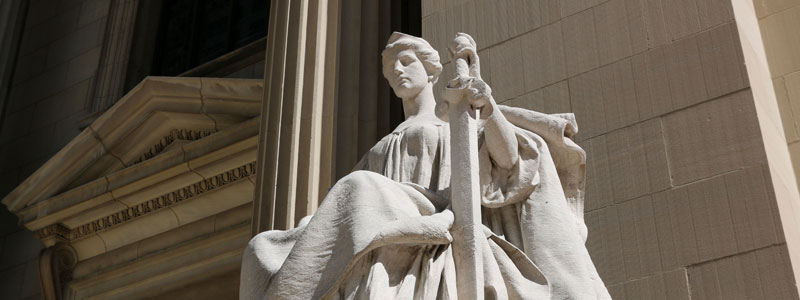What if I’m Injured at a Fourth of July Parade?
Everyone has an Independence Day tradition like cooking out with friends, watching fireworks, or catching a fun Fourth of July parade. If you’re an avid parade-goer, you know that sometimes the festivities can be a little hectic, and might turn dangerous. If you or someone you know was injured at a Fourth of July parade, […]
July 1, 2019

Everyone has an Independence Day tradition like cooking out with friends, watching fireworks, or catching a fun Fourth of July parade. If you’re an avid parade-goer, you know that sometimes the festivities can be a little hectic, and might turn dangerous.
If you or someone you know was injured at a Fourth of July parade, you could recover damages by filing a claim with the parade organizer’s insurance, as well as with other responsible parties.
The Parade Organizers
The parade organizers are liable for any accidents and injuries that occur at the event. After all, they are the ones responsible for hiring volunteers, laying out safety guidelines, and providing a safe environment for everyone who attends the parade. Even if you are injured by another parade-goer, the organizers will still share liability.
Special event insurance policies help cover accidents that occur during parades and other events. If you are injured at an Independence Day parade, you could file a claim with the organizers’ insurance company.
Float Drivers

Driving a parade float can be no easy task. Some more intricate parade floats, like those used in theme parks, don’t have windshields or easy ways of viewing the road, and must rely on small TV screens and instructions from a spotter.
Most float drivers are required to have vehicle insurance, and all are required to have a valid driver’s license. If a float driver drives at an unsafe speed or doesn’t follow parade guidelines, and injures you with their vehicle, the injured party could recover damages from the driver’s insurance company by filing a third party claim.
But because the parade organizers were responsible for hiring and vetting drivers, they would also share responsibility for your injury. If a negligent person was working for someone else when they injured you, then the employer — or in this situation, the event organizers — would also be liable.
If a driver in the parade injures you with their vehicle, then you could also file a claim with the parade organizers’ insurance if your damages exceed the driver’s coverage.
Security Guards
Parade organizers may hire a third-party security company for additional safety during the event. Those security guards may end up causing more injuries while trying to deescalate a dangerous situation.
Most security companies have liability insurance. If you were injured due to security’s actions or inaction, you could recover damages through their insurance company. And because the parade organizers were the ones who hired the security company in the first place, they would also share liability.
Other Parade Goers

If someone hurts you because of their negligence, then you could have a personal injury case. For example, if someone knows their dog doesn’t do well around other people but brings them to the parade anyway, and their dog bites someone, then that person would be negligent.
If someone deliberately hurts you, then that would be assault, not negligence, and would be considered a criminal case rather than a personal injury case. While you couldn’t file an insurance claim, you could file a separate civil lawsuit if they have enough personal assets to cover your damages.
If you were injured by someone working in the parade (say someone is tossing swag into the crowd, but throws too hard and injures your eye), then you would also file a claim with the parade organizers.
The first thing you should do after being injured is get medical attention. Then you should call the police so a report can be filed. That way, you’ll have evidence to support your personal injury claim.
The City

If you slip and fall on uneven pavement, or if the city-provided seating is defective or dangerous, then the city may be liable for your injuries.
But like all things involving the government, filing a claim against your city can be extremely complicated. Not only do you have to prove that the city knew about the defect that caused your injury, but also that they knew about it and didn’t take steps to fix it.
In the state of Indiana you typically have two years to file a lawsuit for a personal injury. But in cases involving government entities you must file a tort claim notice against your city government within 180 days of the accident. There are also extra restrictions on how much you can receive in damages.
A personal injury attorney can help you file a tort claim notice against the city before the limit expires, and help prepare the evidence for a compelling case if you move forward.
Help from a Personal Injury Attorney
If you were injured at your local Independence Day parade, a personal injury attorney can help you determine your next steps towards compensation. Call Hensley Legal Group or contact us online for a free conversation about your claim.